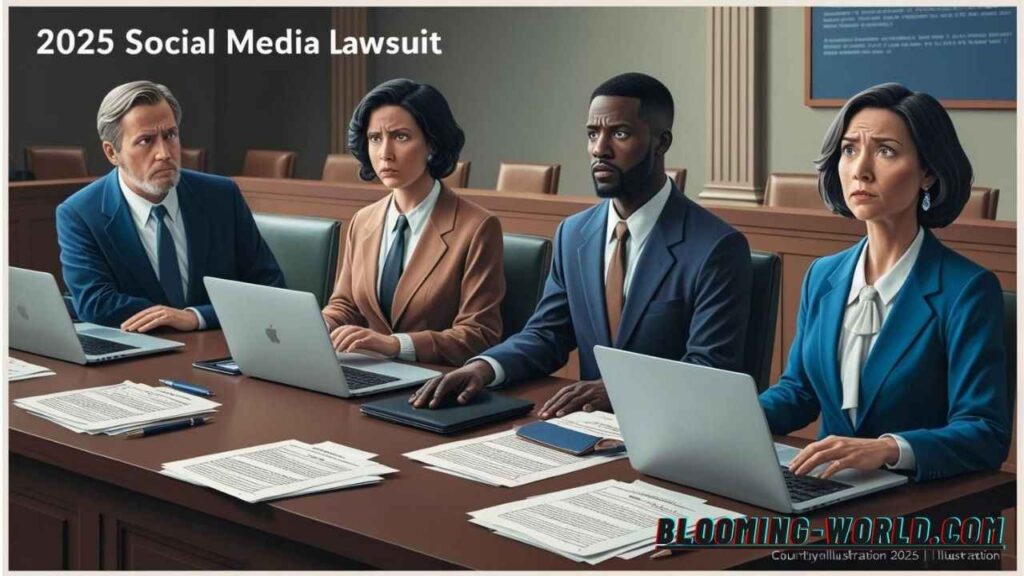The Drive Social Media lawsuit is more than just a legal battle—it’s a wake-up call for small businesses, marketers, and agencies alike. With allegations ranging from false advertising to data manipulation, this case has put a spotlight on the importance of ethical digital marketing, transparency, and accountability in client-agency relationships.
In this guide, we break down the facts, implications, and most importantly—what you can do to protect your business or strengthen your agency moving forward.
🚨 What Is the Drive Social Media Lawsuit About?
In late 2022, the Federal Trade Commission (FTC) filed a lawsuit against Drive Social Media, a once-prominent digital marketing agency headquartered in St. Louis. The suit was filed in the U.S. District Court for the Eastern District of Missouri after rising client complaints and whistleblower reports.
Key Allegations Include:
- False Promises: Unrealistic claims of guaranteed leads and first-page Google rankings.
- Unethical Billing: Charges for undelivered Services, hidden fees, and unauthorized auto-renewals.
- Inflated Results: Alleged falsification of campaign reports to mislead clients on ROI.
- Labor Violations: Claims from former employees about unpaid overtime and a toxic workplace.
These serious allegations led to the lawsuit, which is still unfolding as of 2025.
📈 Who Is Drive Social Media?
Founded in 2011 by Josh Sample, Drive Social Media marketed itself as a performance-driven agency offering:
- Social media management
- Targeted advertising
- Lead generation
- Campaign performance tracking
By 2020, the Agency served over 3,000 clients and reported $20M+ in annual revenue. Its client base included local retailers and small to mid-sized businesses across the U.S.
But beneath the surface, growing customer dissatisfaction was brewing—ultimately leading to legal action.
🧑⚖️ Drive Social Media’s Response
Drive Social Media denies all allegations and maintains that:
- Clients had full access to real-time dashboards and metrics.
- Results vary due to shifting algorithms and market conditions.
- Their practices meet industry standards and aim for client satisfaction.
Despite their defense, public trust has taken a hit, and industry scrutiny continues to grow.
⚠️ Why This Lawsuit Matters in 2025
1. Client Trust Is On the Line
Agencies hold the keys to brand visibility and digital growth. When promises fall flat or data is distorted, the damage can be devastating for small business owners.
2. Misused Budgets & Lost Growth
Many small businesses invested thousands in marketing campaigns with little to show for it. Misleading performance reports led to poor decision-making and delayed results.
3. Industry Reputation Under Fire
This lawsuit adds pressure on marketing agencies to prove they are trustworthy, ethical, and results-driven. More than ever, clients demand verifiable proof of performance and contract clarity.
✅ How Businesses Can Protect Themselves
If you’re hiring a digital marketing agency—or already working with one—these best practices can help you stay protected and get better results:
🔍 1. Research Agencies Thoroughly
- Read reviews on Google, Glassdoor, and Clutch.
- Ask for case studies and verified performance data.
- Avoid vague guarantees and high-pressure sales tactics.
📊 2. Demand Transparent Reporting
- Insist on reports from platforms like Google Ads, Facebook Ads Manager, or HubSpot.
- Make sure you know what metrics matter and how success will be measured.
📄 3. Scrutinize Contracts
- Look for auto-renewal clauses, hidden fees, and cancellation policies.
- Ask questions or consult a legal advisor before signing anything.
📆 4. Schedule Regular Performance Reviews
- Hold monthly or quarterly review meetings.
- Discuss KPIs, campaign updates, and return on ad spend (ROAS) regularly.
💼 5. Explore Performance-Based Pricing
Consider agencies that offer results-driven payment models, where compensation aligns with real business outcomes—not just activity.
🧠 Key Takeaways for Marketing Agencies
For agencies and marketers, this lawsuit is a clear warning: outdated practices and unethical shortcuts won’t survive the modern landscape. To remain competitive and credible in 2025, agencies must:
- Set realistic expectations with clients.
- Avoid manipulating performance data.
- Offer transparent dashboards and clear metrics.
- Ensure full labor law compliance internally.
Building a client-focused, ethical, and legally compliant agency is not optional—it’s essential.
🔮 What Could Happen Next?
The case is still active in 2025, but potential outcomes include:
- Fines and restitution for affected clients
- Tighter FTC oversight and new compliance requirements
- Higher standards for reporting transparency in the marketing industry
Even before a final ruling, the Drive Social Media case is changing how agencies operate—and how clients choose who to trust.
💡 Final Thoughts
The Drive Social Media lawsuit offers a crucial lesson for the digital marketing world: Accountability and transparency are not negotiable. Whether you’re a business owner or an agency executive, now is the time to double down on ethics, clarity, and performance.
For Businesses:
Be cautious. Vet every agency. Track your ad spend. Ask questions.
For Agencies:
Be honest. Show your work. Protect your team. Build trust.
This isn’t just a trending news story—it’s a pivotal moment in the evolution of digital marketing. Act now, or risk falling behind.
FAQ – Drive Social Media Lawsuit 2025
Q1: Is Drive Social Media still operating in 2025?
A: As of May 2025, the company is still active, but under intense legal and public scrutiny.
Q2: What are the key allegations against Drive Social Media?
A: Misleading advertising, unethical billing, inflated campaign results, and labor law violations.
Q3: How can I verify a marketing agency’s performance?
A: Request platform-native reports (Google Ads, Meta Ads), check case studies, and speak directly to references.
Written by: [Hannah___Blooming-World]
Updated: May 2025 | Category: Business/Digital Marketing | Estimated Reading Time: 7 mins



